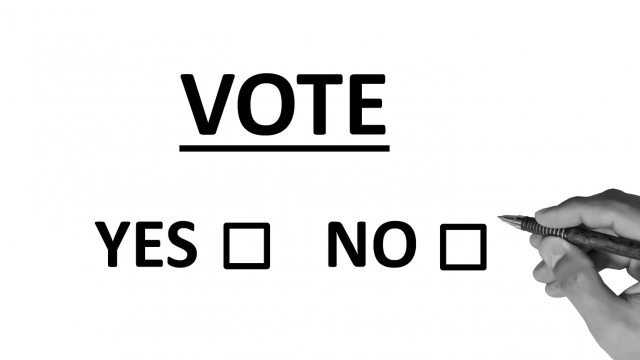Opinion: Shaming people to vote 'yes' for Indigenous Voice to Parliament won't work

By Colleen Lewis
A version of this article was originally published by The Canberra Times.
Please Prime Minister, Minister Linda Burney and others promoting the "yes" vote, have a full and frank conversation with the Australian people about the practical outcomes that will result from enshrining a Voice to Parliament in the Australian constitution.
Please, address all of the questions surrounding the Voice in a calm, considered and respectful manner.
Be prepared to repeat the same message as often as is necessary so that the majority of Australian voters have the information they are requesting, and are entitled to receive, before they cast their vote.
I make these pleas as the forthcoming referendum may not deliver a majority "yes" vote if those advocating for it continue to rely on emotional phrases such as "if not now when", or as a national current affairs presenter suggested to the undecided "do you want to be on the wrong side of history"?
Attempting to shame those asking for greater clarification may well cause undecided voters to vote "no" and entrench the vote of those currently in the "no" camp.
The government's recent decision to issue a pamphlet explaining the rationale underpinning a "yes" and "no" vote could help to address the many questions the undecided have raised.
If designed in a balanced manner, the pamphlet could well shift some from a "no" to a "yes" vote and convince the undecided to vote "yes".
A dominant message coming from the Prime Minister, his ministers and leaders of the "yes" campaign is to repeatedly tell the Australian community that they are being asked to vote on a principle.
They are. However, this strategy relies on the majority's reaction to the explanation that parliament will determine the detail.
The "yes" campaign will need to address the fact that trust in parliament, and in particular parliamentarians is very low; so do the undecided have the required confidence in parliament to vote "yes"?
Following on from this mindset is the strong possibility that those seeking further information may vote "no" as they also believe that "you can't trust a politician".
The lack of more precise information may also influence undecided voters to question the principle only argument by asking themselves, if they won't provide details "what are they trying to hide ".
The government and others promoting a "yes" vote based on the principle only argument should carefully consider these possibilities, lest the lack of detail backfires and produces a majority "no" vote.
There are also undecided voters who are genuinely confused by the idea of a special Voice to Parliament for Aboriginal and Torres Strait Islander people. Some of that confusion relates to the nature of Australia's political system.
Australia is a liberal democracy in which candidates are elected to represent their constituents in parliament.
As such, it is classified as a "representative democracy". Accepting this is the case, the question arises: why have the people elected to Federal Parliament not represented, individually and collectively, Aboriginal and Torres Strait Islanders' interests in the way they should?
Why have members of both houses failed, in more recent years to address the genuine, well-founded, evidence-based concerns of First Nations people?
If they have not, why not? This is yet another matter parliamentarians need to publicly explain.
The government and many of its senior members are telling all Australians that enshrining the Voice will have a positive effect on the lives of Aboriginal and Torres Strait Islanders.
What they are not telling the undecided voter is exactly what mechanisms will be introduced to ensure delivery of this much-needed, long overdue outcome.
Simply alluding to a representative body of Aboriginal and Torres Strait Islander people may not go far enough to convince many undecided voters to cast a "yes" vote or to change the mind of those currently in the "no" camp.
Governments of all political persuasions have failed to address the extreme discriminatory disadvantage and disrespect Aboriginal and Torres Strait Islanders have endured over centuries.
Reasons underpinning this unacceptable, shameful state of affairs can be linked to the mistaken belief by respective governments and parliaments that they knew best how to address the myriad of policies that impacted the lives of First Nations people.
History clearly shows that they were dreadfully wrong.
What parliamentarians failed to do for centuries was engage meaningfully and respectfully with Aboriginal and Torres Strait Islanders, especially with those who reside in their communities and have and continue to experience first-hand the unacceptable consequences of unwise, uninformed and discriminatory public policies.
This is precisely what the Voice is trying to remedy but unless there is more detail, which informs the Australian voter of how it will operate in practice, the "yes" campaign leaders, which include the government, run the risk of delivering unintended consequences: a majority "no" vote.
They should change their messaging before it is too late.
Dr Colleen Lewis is an honorary professor at the ANU Australian Studies Institute.








